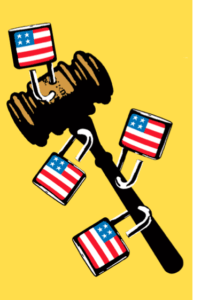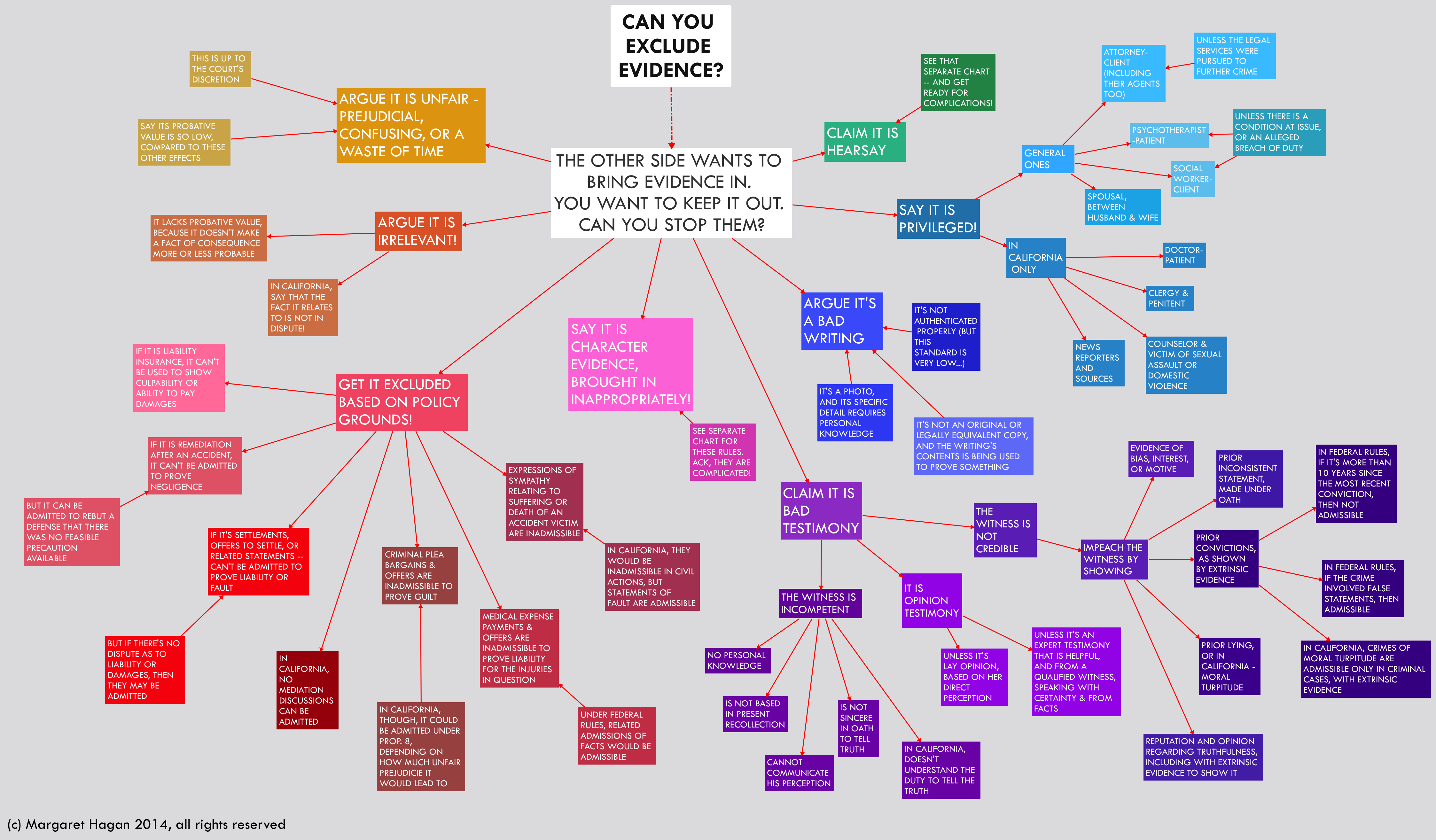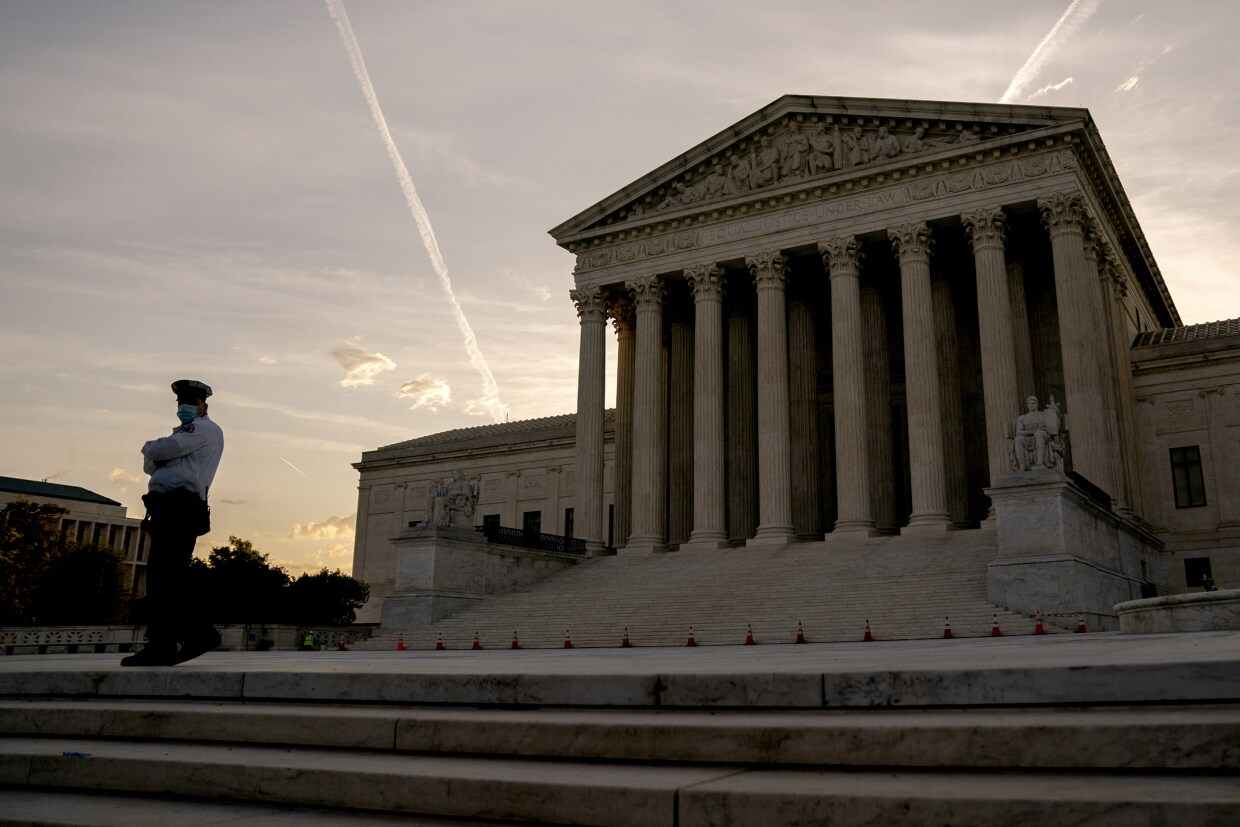New $upreme Court Ruling
Makes it Ea$ier to $ue Police When Criminal Charge$ are Dropped!
In order to $ue, a defendant doesn’t have to be found not guilty by a judge or jury and prosecutors don’t have to state that they wrongly filed charges, the court said.
WASHINGTON — The Supreme Court on Monday made it easier to sue police and the government for malicious prosecution when charges are later dropped.
In a 6-3 ruling, the court said that in order to sue, a defendant doesn’t have to be found not guilty by a judge or jury and prosecutors don’t have to state that they wrongly filed charges. It’s enough, the court said, if the charges are simply dismissed.
“The question of whether a criminal defendant was wrongly charged does not logically depend on whether the prosecutor or court explained why the prosecution was dismissed,” Justice Brett Kavanaugh wrote for the court’s majority.
When the police arrived, he said they couldn’t come in without a warrant. They barged in anyway and handcuffed him after a brief scuffle. The baby was taken to a hospital for evaluation, but the only marks on the child turned out to be diaper rash.

The relative who called 911 “apparently suffered from a mental illness,” court records said.
Even so, Thompson was charged with resisting arrest and kept in jail for two days. The prosecutor then dropped the charges, and the judge dismissed the case — both without explanation.
In its landmark decision, Bivens v. Six Unknown Named Agents of the Federal Bureau of Narcotics, 403 U.S. 388 (1971), the U.S. Supreme Court held that federal officials can be sued personally for money damages for on-the-job conduct that violates the Constitution. Cases in which federal employees face personal liability cut across everything the government does in all three branches of government. Whether they are engaging in every-day law enforcement, protecting our borders, addressing national security, or implementing other critical government policies and functions, federal employees of every rank face the specter of personal liability.
This ruling has a complexity to it, that does not favor a malicious prosecutor or police force. it holds them accountable! New Supreme Court Ruling makes it easier to sue police when criminal charges are dropped or dismissed. This hold the prosecutor accountable because an attorney has a fiduciary duty to his client, meaning that a relation “exist[s] between parties to a transaction wherein one of the parties is duty bound to act with the utmost good faith in the benefit of the other party. Such a relation ordinarily arises when a confidence is reposed by one person in the integrity of another, and in such a relation the party in whom the confidence is reposed, if he [or she] voluntarily accepts or assumes to accept the confidence, can take no advantage from his [or her] acts relating to the interest of the other party without the latter’s knowledge or consent. . . . ”
An attorney may not seek, accept or continue employment where it is not substantiated by probable cause,
thus an attorney may not prosecute any case that is not well
- 1 Cal. Rules Prof. Conduct, Rule 1-400. 2 Id. 3 McKinnery State Bar, 62 Cal.2d 194, 196 (1964);
Culter v. State Bar of California, 71 Cal.2d 241, 249 (1969);
see also Coulello v. State of California, 45 Cal.2d 57 (1955);
Hallinan v. State Bar of California, 33 Cal.2d 246 (1948).
Clearly, this duty applies not only with reference to the client but also with regard to the court,
opposing counsel. 4 Cal. Rules Prof. Conduct, Rule 3 -200; Cal. Bus. & Prof. Code
-
6068(c). The ABA Model Rules of Professional Conduct, Rule 3.1 & 4.4, also impose a duty to the legal
system which requires both that the attorney bring only meritorious claims and that they not use inappropriate means in the representation of their client that embarrass, bur den, delay or violate legal rights. Barbara A. v. John G., 145 Cal.App.3d 369 (1983) (citing Herbert v. Lankershim, 9 Cal.2d 409, 483 (1937); Bacon v. Soule, 19 Cal.App. 428, 434 (1912)
In its landmark decision, Bivens v. Six Unknown Named Agents of the Federal Bureau of Narcotics,
403 U.S. 388 (1971), the U.S. Supreme Court held that federal officials can be sued personally for money damages for on-the-job conduct that violates the Constitution. Cases in which federal employees face personal liability cut across everything the government does in all three branches of government. Whether they are engaging in every-day law enforcement, protecting our borders, addressing national security, or implementing other critical government policies and functions, federal employees of every rank face the specter of personal liability.
we also have the article on our site here thompson-v-clark-364-f-supp-3d-178/
- Police Discretion
- The police violated my rights
- DEPRIVATION OF RIGHTS UNDER COLOR OF LAW
- How to File a complaint of Police Misconduct?
- Suing for Misconduct – Know More of Your Rights
- New Supreme Court Ruling makes it easier to sue police
- Prosecutorial Misconduct, What is it?
- Frivolous, Meritless or Malicious Prosecution
- Malicious Prosecution / Prosecutorial Misconduct
- Prosecutorial Misconduct
- Vindictive Prosecution – Georgetown University
- VINDICTIVE AND SELECTIVE PROSECUTION
- Misconduct by Judges & Prosecutor
- CALIFORNIA ATTORNEY MISCONDUCT LAW
- Equality Act 2010 – Discrimination and mental health
- Motion to reconsider – Cal. Code Civ. Proc. § 1008 Section 1008
- Fighting A Judgment Without Filing An Appeal Settlement Or Mediation – Options to Appealing
- Right to Truth – Victims’ Bill of Rights – Prop 8 1982
- 118.1 PC – Police Officers Filing False Reports
To Learn More…. Read MORE Below and click the links Below
Abuse & Neglect – The Reporters (Police, D.A & Medical & the Bad Actors)
If You Would Like to Learn More About: The California Mandated Reporting LawClick Here
To Read the Penal Code § 11164-11166 – Child Abuse or Neglect Reporting Act – California Penal Code 11164-11166Article 2.5. (CANRA) Click Here
Mandated Reporter formMandated ReporterFORM SS 8572.pdf – The Child Abuse
ALL POLICE CHIEFS, SHERIFFS AND COUNTY WELFARE DEPARTMENTS INFO BULLETIN Click Here Officers and DA’s for (Procedure to Follow)
It Only Takes a Minute to Make a Difference in the Life of a Child learn more below
You can learn more here California Child Abuse and Neglect Reporting Law its a PDF files taken from
Learn More About True Threats Here below….
We also have the The Brandenburg v. Ohio (1969) – 1st Amendment
CURRENT TEST = We also have the The ‘Brandenburg test’ for incitement to violence – 1st Amendment
We also have the The Incitement to Imminent Lawless Action Test– 1st Amendment
We also have the True Threats – Virginia v. Black is most comprehensive Supreme Court definition – 1st Amendment
We also have the Watts v. United States – True Threat Test – 1st Amendment
We also have the Clear and Present Danger Test – 1st Amendment
We also have the Gravity of the Evil Test – 1st Amendment
We also have the Elonis v. United States (2015) – Threats – 1st Amendment
Learn More About What is Obscene…. be careful about education it may enlighten you
We also have the Miller v. California – 3 Prong Obscenity Test (Miller Test) – 1st Amendment
We also have the Obscenity and Pornography – 1st Amendment
Learn More About Police, The Government Officials and You….
$$ Retaliatory Arrests and Prosecution $$
We also have the Brayshaw v. City of Tallahassee – 1st Amendment – Posting Police Address
We also have the Publius v. Boyer-Vine –1st Amendment – Posting Police Address
We also have the Lozman v. City of Riviera Beach, Florida (2018) – 1st Amendment – Retaliatory Police Arrests
We also have the Nieves v. Bartlett (2019) – 1st Amendment – Retaliatory Police Arrests
We also have the Hartman v. Moore (2006) – 1st Amendment – Retaliatory Police Arrests
Retaliatory Prosecution Claims Against Government Officials – 1st Amendment
We also have the Reichle v. Howards (2012) – 1st Amendment – Retaliatory Police Arrests
Retaliatory Prosecution Claims Against Government Officials – 1st Amendment
We also have the Freedom of the Press – Flyers, Newspaper, Leaflets, Peaceful Assembly – 1st Amendment
We also have the Insulting letters to politician’s home are constitutionally protected, unless they are ‘true threats’ – Letters to Politicians Homes – 1st Amendment
We also have the First Amendment Encyclopedia very comprehensive – 1st Amendment
ARE PEOPLE LYING ON YOU? CAN YOU PROVE IT? IF YES…. THEN YOU ARE IN LUCK!
We also have the Penal Code 118 PC – California Penalty of “Perjury” Law
We also have the Federal Perjury – Definition by Law
We also have the Penal Code 132 PC – Offering False Evidence
We also have the Penal Code 134 PC – Preparing False Evidence
We also have the Penal Code 118.1 PC – PoliceOfficer$ Filing False Report$
We also have the Spencer v. Peters– PoliceFabrication of Evidence – 14th Amendment
We also have the Penal Code 148.5 PC – Making a FalsePoliceReport in California
We also have the Penal Code 115 PC – Filing a False Document in California
Sanctions and Attorney Fee Recovery for Bad Actors
FAM § 3027.1 – Attorney’s Fees and Sanctions For False Child Abuse Allegations – Family Code 3027.1 – Click Here
FAM § 271 – Awarding Attorney Fees– Family Code 271 Family Court SanctionClick Here
Awarding Discovery Based Sanctions in Family Law Cases – Click Here
FAM § 2030 – Bringing Fairness & Fee Recovery – Click Here
Zamos v. Stroud – District Attorney Liable for Bad Faith Action – Click Here
Know Your RightsClick Here (must read!)
Under 42 U.S.C. $ection 1983 – Recoverable Damage$
42 U.S. Code § 1983 – Civil Action for Deprivation of Right$
$ection 1983 Lawsuit – How to Bring a Civil Rights Claim
18 U.S. Code § 242 – Deprivation of Right$ Under Color of Law
18 U.S. Code § 241 – Conspiracy against Right$
$uing for Misconduct – Know More of Your Right$
Police Misconduct in California – How to Bring a Lawsuit
Malicious Prosecution / Prosecutorial Misconduct – Know What it is!
New Supreme Court Ruling – makes it easier to sue police
Possible courses of action Prosecutorial Misconduct
Misconduct by Judges & Prosecutor – Rules of Professional Conduct
RELATIONSHIP WITH YOUR CHILDREN & YOUR CONSTITUIONAL RIGHT$ + RULING$
YOU CANNOT GET BACK TIME BUT YOU CAN HIT THOSE PUNKS WHERE THEY WILL FEEL YOU = THEIR BANK
We also have the 9.3 Section 1983 Claim Against Defendant as (Individuals) — 14th Amendment this CODE PROTECT$ all US CITIZEN$
We also have the Amdt5.4.5.6.2 – Parental and Children’s Rights 5th Amendment this CODE PROTECT$ all US CITIZEN$
We also have the 9.32 – Interference with Parent / Child Relationship – 14th Amendment this CODE PROTECT$ all US CITIZEN$
We also have the California Civil Code Section 52.1Interference with exercise or enjoyment of individual rights
We also have the Parent’s Rights & Children’s Bill of RightsSCOTUS RULINGS FOR YOUR PARENT RIGHTS
We also have a SEARCH of our site for all articles relating for PARENTS RIGHTS Help!
GRANDPARENT CASE LAW
Troxel v. Granville, 530 U.S. 57 (2000) – Grandparents – 14th Amendment
Third “PRESUMED PARENT” Family Code 7612(C) – Requires Established Relationship Required
S.F. Human Servs. Agency v. Christine C. (In re Caden C.)
9.32 Particular Rights – Fourteenth Amendment – Interference with Parent / Child Relationship
Parent’s Rights & Children’s Bill of Rights
Cal State Bar PDF to read about Three Parent Law – The State Bar of California family law news issue4 2017 vol. 39, no. 4.pdf
DUE PROCESS READS>>>>>>
Due Process vs Substantive Due Process learn moreHERE
Understanding Due Process – This clause caused over 200 overturns in just DNA alone Click Here
Mathews v. Eldridge – Due Process – 5th & 14th Amendment Mathews Test – 3 Part Test– Amdt5.4.5.4.2 Mathews Test
“Unfriending” Evidence – 5th Amendment
At the Intersection of Technology and Law
We also have the Introducing TEXT & EMAIL Digital Evidence in California Courts – 1st Amendment
Retrieving Evidence / Internal Investigation Case
Fighting Discovery Abuse in Litigation – Forensic & Investigative Accounting – Click Here
Conviction Integrity Unit (“CIU”) of the Orange County District Attorney OCDA – Click Here
Orange County Data, BodyCam, Police Report, Incident Reports, and all other available known requests for data below:
APPLICATION TO EXAMINE LOCAL ARREST RECORD UNDER CPC 13321 Click Here
Learn About Policy 814: Discovery RequestsOCDA Office – Click Here
Request for Proof In-Custody Form Click Here
Request for Clearance Letter Form Click Here
Application to Obtain Copy of State Summary of Criminal HistoryForm Click Here
Request Authorization FormRelease of Case Information – Click Here
CPRA Public Records Act Data Request – Click Here
Here is the Public Records Service Act Portal for all of CALIFORNIAClick Here
Appealing/Contesting Case/Order/Judgment/Charge/ Suppressing Evidence
First Things First: What Can Be Appealed and What it Takes to Get Started – Click Here
Options to Appealing– Fighting A Judgment Without Filing An Appeal Settlement Or Mediation
Cal. Code Civ. Proc. § 1008 Motion to Reconsider
Penal Code 1385 – Dismissal of the Action for Want of Prosecution or Otherwise
Penal Code 1538.5 – Motion To Suppress Evidence in a California Criminal Case
CACI No. 1501 – Wrongful Use of Civil Proceedings
Penal Code “995 Motions” in California – Motion to Dismiss
WIC § 700.1 – If Court Grants Motion to Suppress as Evidence
Suppression Of Exculpatory Evidence / Presentation Of False Or Misleading Evidence – Click Here
Notice of Appeal — Felony (Defendant) (CR-120) 1237, 1237.5, 1538.5(m) – Click Here
 Epic Criminal / Civil Right$ SCOTUS Help – Click Here
Epic Criminal / Civil Right$ SCOTUS Help – Click Here
 Epic Parents SCOTUS Ruling – Parental Right$ Help – Click Here
Epic Parents SCOTUS Ruling – Parental Right$ Help – Click Here
 Judge’s & Prosecutor’s Jurisdiction– SCOTUS RULINGS on
Judge’s & Prosecutor’s Jurisdiction– SCOTUS RULINGS on
Prosecutorial Misconduct
Judicial & Prosecutorial Conduct
Family Treatment Court Best Practice Standards
Download Here this Recommended Citation
Please take time to learn new UPCOMING
The PROPOSED Parental Rights Amendment
to the US CONSTITUTION Click Here to visit their site
The proposed Parental Rights Amendment will specifically add parental rights in the text of the U.S. Constitution, protecting these rights for both current and future generations.
The Parental Rights Amendment is currently in the U.S. Senate, and is being introduced in the U.S. House.


